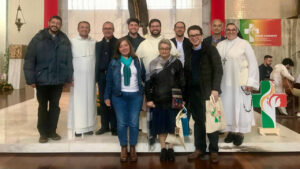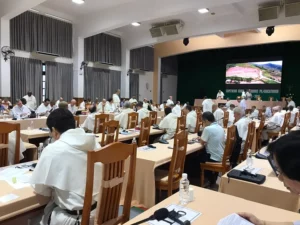During the colonization of America in the sixteenth century, when the friars preachers in Hispaniola (Antonio de Montesinos, Pedro de Cordoba, Bartolomé de las Casas, and others) realized that the dignity and rights of the indigenous people were being disrespected and violated, their preaching against these practices was not easily accepted by those in power, including many Church leaders. To assist their mission, the theologians of Salamanca, led by Francisco de Vitoria, began to engage in theological research that led to the formulation of principles and laws that could protect the life and culture of forgotten, exploited and dispossessed peoples.
So, in like manner, the Salamanca Process refers to a way of doing theological research that places theology at the service of law and the promotion of respect for human dignity in both its individual and social dimensions. It therefore proposes a regular conversation between preachers and theologians on the one hand and people of other disciplines (especially law and the social sciences), along with those whose rights and dignity are disrespected on the other hand, in order to identify God’s words and actions that are needed to respond effectively to such situations of suffering and marginalization today. This should enable a deeper conversation between God and the world which is a condition for authentic theological studies.

Bartolome de las Casas
The Salamanca Process also highlights the importance of linking our intellectual life and our apostolic life, our study and our mission as an integral dimension of our Dominican spirituality. In other words, for an effective conversation between God and the world, all our study should be geared towards bringing Good News by answering the questions posed by people in our local contexts and in the world at large.



